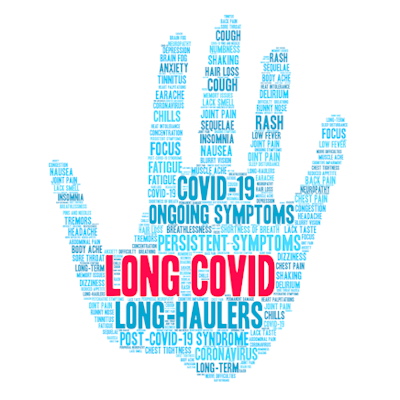March 6, 2023 -- Researchers from Utah-based Intermountain Health, a not-for-profit system of hospitals, studied nearly 150,000 patients for cardiovascular symptoms following a COVID-19 infection. The results of the study, presented on March 5 at the American College of Cardiology's 2023 Scientific Conference in New Orleans, are part of an ongoing effort to quantify long COVID's impacts.
Nearly one-fifth of U.S. adults who have previously tested positive for COVID-19 report having long COVID, in which they experience signs and symptoms for four weeks or more -- well beyond the acute phase of initial infection. Even patients with mild COVID-19 infections can suffer from health complications months, or even years, after infection.
In a large retrospective study, researchers compared three groups of Intermountain Health patients. The first group consisted of 148,158 people ages 18 and up who tested positive for COVID-19 and were treated as outpatients from March 2020 to December 31, 2021. The second group consisted of 148,158 Intermountain patients of approximately the same ages and genders who tested negative for COVID-19 and were seen during the same time period as those who tested positive. The third group consisted of 148,158 patients seen before the pandemic began -- between January 1, 2018, and August 31, 2019 -- as a historical control, to account for how patients may have accessed healthcare differently during the height of the pandemic.
The team found that at six-month and one-year intervals after a COVID-19 infection, patients who tested positive reported significantly higher rates of chest pain. While the researchers found no significant increases in major cardiovascular events such as heart attack or stroke in patients with mild initial COVID-19 infections, they did find chest pain to be a persistent problem. Such pain could be indicative of future cardiovascular complications.
Muscle soreness in the chest region can be caused by severe viral infections, such as COVID-19, and may manifest as localized or widespread pain. The affected area can be tender to the touch and exacerbated by certain movements, such as twisting or stretching of the chest
Although the precise biological mechanisms involved in the association between long COVID and heart complications are unknown, previous research indicates that chronic inflammation, documented by persistently elevated inflammatory markers in long-COVID patients, could be a factor. Coordinated efforts among primary care providers, emergency room staff, and cardiologists could help with the early detection and mitigation of cardiac complications among these patients
"As of right now, the symptoms aren't necessary translating into hard outcomes, but that's something that will need to be reassessed over time," Heidi May, PhD, the principal investigator and an Intermountain Health cardiovascular epidemiologist, said in a statement.
Copyright © 2023 scienceboard.net







